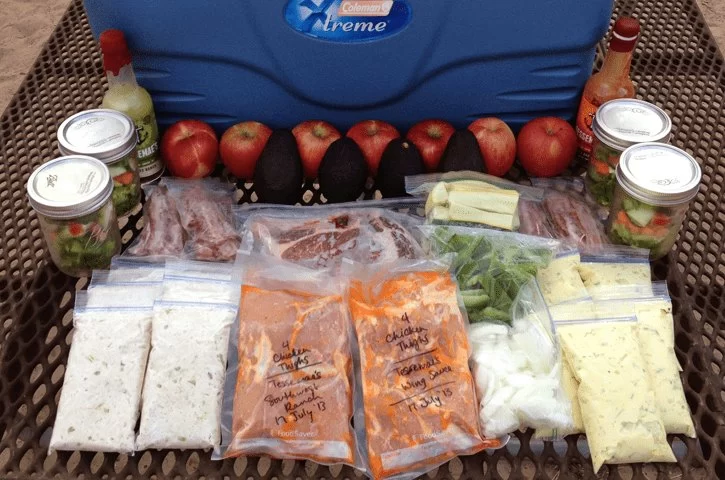Learn essential tips for packing food for a week-long camping trip. Discover meal planning strategies, non-perishable options, storage techniques, and real camping stories for a safe and enjoyable outdoor experience.

- 1 - Smart Meal Planning Before the Trip
- 2 - Choosing Non-Perishable Foods for Camping
- 3 - Safe and Efficient Food Storage Techniques
- 4 - Essential Cooking Equipment for Outdoor Meals
- 5 - Real Camping Stories That Teach Food Lessons
- 6 - Extra Tips for Packing Food That Lasts a Week
- 7 - Explore More Camping Resources and Services
1 - Smart Meal Planning Before the Trip
One of the most important tips for packing food for a week-long camping trip is to create a detailed meal plan. Knowing exactly what you’ll eat each day reduces stress and helps avoid overpacking. Many experienced campers write out breakfast, lunch, dinner, and snacks for every day, making sure meals can be cooked with minimal fuss. A simple plan like oatmeal in the morning, sandwiches at lunch, and grilled proteins at dinner keeps both variety and convenience in balance.
2 - Choosing Non-Perishable Foods for Camping
Non-perishable items are the backbone of any successful camping food pack. Foods like pasta, rice, trail mix, peanut butter, and canned beans hold up well for days without refrigeration. Dried fruits and jerky also make excellent snacks, providing both energy and nutrition. By prioritizing these foods, campers avoid worrying about spoilage while still enjoying flavorful and filling meals in the wilderness.
3 - Safe and Efficient Food Storage Techniques
Even the best food choices can spoil if not stored correctly. A key camping skill is learning how to organize coolers with ice packs and keep perishable items in sealed containers. Labeling bags with meal days can also prevent confusion when digging through supplies. Some campers even freeze meats before departure so they gradually thaw over the first few days. These strategies extend food freshness while minimizing waste and risk of contamination.
4 - Essential Cooking Equipment for Outdoor Meals
Cooking in the outdoors can be fun, but it requires preparation. Lightweight stoves, compact grills, and portable pots make preparing hot meals much easier. A sharp knife, cutting board, and reusable utensils are equally essential. To simplify things, pre-cooking some meals at home, such as soups or stews, ensures you can simply reheat them by the fire. This combination of tools and preparation keeps meal times efficient and enjoyable.
5 - Real Camping Stories That Teach Food Lessons
Many campers learn their best food-packing lessons the hard way. One group on a week-long trip in the Rockies once packed too many fresh vegetables, only to find them spoiled by the fourth day. Another family recalled how forgetting to bring enough cooking fuel forced them to improvise meals around the campfire. Stories like these remind us why careful planning and backup options are so valuable. They also make every future camping trip smoother and more memorable.
6 - Extra Tips for Packing Food That Lasts a Week
Beyond the basics, a few expert tricks can make camping food last longer. Vacuum sealing dry goods keeps them protected from moisture and pests. Separating food by daily portions helps control consumption and avoids running short toward the end of the trip. Bringing spices, sauces, and seasoning packets prevents meals from becoming repetitive. By thinking ahead, campers can create a week of meals that are safe, nutritious, and enjoyable.
7 - Explore More Camping Resources and Services
If you’re planning your next adventure and want more guidance beyond these tips for packing food for a week-long camping trip, Pine Cliff Resort provides resources, gear recommendations, and services to make your experience even smoother. From helping you choose the right equipment to offering advice on safe storage, these services ensure you’re well-prepared to enjoy the great outdoors.
Wolf Creek Reservoir Campground
Union County, OR 97867, USA
Visit Location PageHome Field Advantage Farmstead
5789 SE Co Rd 255, Lee, FL 32059, USA
Visit Location Page